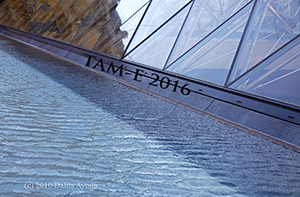This study aims to analyze how future is expressed in potential/hypothetical conditional clauses in Portuguese, through the arrangement of different tenses used in the main and subordinate clauses, and by other mechanisms that trigger the future idea as well as by the expression of modality in these conditionals, which have been distinguished in more eventual (intense future), and more possible (less intense) since Latin. From a functionalist perspective, based mainly on Comrie (1985) - but also Fleischman (1984); Klein (2009) - tense was viewed as a functional category that is not encoded only by the verb, but is also related to the complex interaction between tense, syntax and discourse in certain subordinate clauses; and modality was considered a complex category which involves semantic and pragmatic factors (PALMER, 1986). The methodology used to analyse the written and oral data of Portuguese was both quantitative and qualitative. The main hypothesis concerns the correlation of certain verb forms used in protasis (future subjunctive; present subjunctive; present indicative), with the presence of following factors: (i) some mark of future, as future tense in apodosis; (ii) weak possibility and desire; (iii) the speaker's degree of certainty front the proposition. The majority of results showed that once future had been already marked in the context, predominated in protasis the present indicative (when there was more certainty) or present subjunctive (when we identified weak possibility or desire), while the use of future subjunctive prevailed when there wasn't mark of future. In other words, the future was marked in construcion mostly by future subjunctive (in protasis), or by the future indicative in apodosis or by some modal meaning (as desire) that trigger the future idea correlated to the use of present subjunctive, but rarely by two or more of these means together, especially in oral data, contradicting some grammatical descriptions.
- Autre

 PDF version
PDF version
